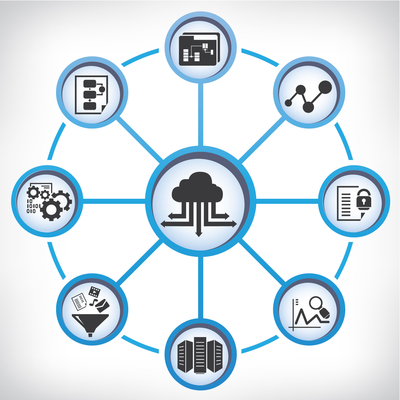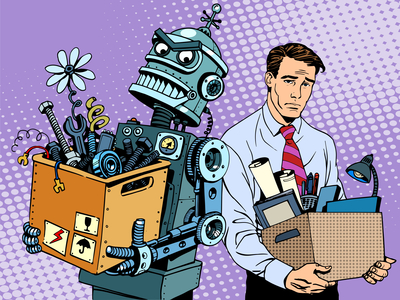Consumerism
Bracing For Change
Prof Datuk Dr Marimuthu Nadason, President of the Federation of Malaysian Consumer Associations (FOMCA).
The Fourth Industrial Revolution is here to stay and its impact has been felt by all industries. Technology has not only changed the way businesses operate, but has altered the behavioural patterns of consumers. Change is not necessarily a bad thing, and the success of an organisation lies in how quick they embrace the change, and how they incorporate it across their value chain.
Prof Datuk Dr Marimuthu Nadason, President of the Federation of Malaysian Consumers Associations (FOMCA), shares his thoughts on the benefits of the Fourth Industrial Revolution, how technology is changing consumer behaviours as well as the importance of data and its corresponding regulations in today’s world.
Age Of Breakthroughs
Under the banner of emerging technologies – Analytics, Artificial Intelligence and Internet Of Things have been successfully incorporated into various sectors, to improve efficiency and productivity across the board.
“What were once futuristic ideas have already materialised into the present reality. Take for example artificial intelligence in the medical field, where a medical diagnosis can be produced faster than a radiologist and with pinpoint accuracy,” said Prof Marimuthu. He went on to highlight that autonomous vehicles are currently being developed with the hopes of a safe and reliable driverless car not far in the horizon. Not only would this reduce road accidents and incidents of drunk driving, it would improve road safety and security.
Many concerns have been raised concerning the safety aspect of autonomous vehicles with recent incidents skewing public opinion on the matter, but nevertheless, there’s still vast potential in this sector. When we talk about the construction industry, we aren’t just talking about smart homes with sensors.
According to Prof Marimuthu, houses can now be build entirely using a 3D printer, with speed and accuracy that far surpasses the human capacity. This would also reduce excess waste – heading towards a more sustainable form of construction. Whilst this works in the favour of the industry and Mother Earth, people also need to think about how this will affect labour, and what technical skills are required to meet demands.
Blockchain, on the other hand, could potentially revolutionise the banking and finance industry, offering the utmost transparency to all parties. Virtual transactions and business deals do away with tedious paper procedures and smoothens the entire process.
“I could easily draft out a virtual agreement with a third party, insert the conditions and allow my partners and stakeholders access to the agreement. Once the conditions of the agreement have been met, I would then make the payment, verifiable by the third party. The entire trail is documented virtually and in real time so that all parties are aware of any new change at any given time,” explained Prof Marimuthu.
Connection is key...Big data allows companies to look into new areas of growth, make informed decisions on their marketing strategies as well as international branding.
A New Market
It’s no secret that digital natives and tech-savvy consumers are on the rise, and traditional methods of capturing their attention are insufficient. According to the FOMCA President, customers are now more educated and make informed decisions when it comes to choosing products or services. “Think of it this way – if you walk into a shop, nearly every product on the shelves would have been, in some way or other, reviewed online.
Depending on your biases towards a brand or certain review sites, you would then make your choice. There are even sites which compare products of similar category, allowing you to get your money’s worth.
“Online shopping is also picking up, with many brick and mortar superstores closing down and going digital. However, based on our NCCC Annual Report, the most number of complaints received were concerning online shopping. Companies need to realise that if they fail to deliver seamless customer experience, there are multiple other platforms that the customer can readily jump ship to,” said Prof Marimuthu.
Here is where data analytics steps in, as they are able to leverage on data collected from customers into predicting their behaviour. With this information, brands would be able to devise key strategies in attracting and retaining customers. Simply by analysing their purchasing history and preferences, brands would be able to ensure a solid engagement with the customer, increasing their loyalty for the brand. Consumers may also rejoice with the breakthroughs in the product packaging and process systems which ultimately have increased transparency and efficiency.
Companies are now coming up with new innovations to ensure reduced product damage rates. Logistics would also see a reduction in costs as robotics and AI are able to customise packaging sizes and weight. Less materials are wasted which also improves packaging sustainability as well.
Shielding Consumers
As President of FOMCA, Professor Marimuthu is well-versed in the laws and regulations that consumers can turn to to protect their rights. One such law is the Consumer Protection Act 1999 which provides protection for consumers through the establishment of the National Consumer Advisory Council and the Tribunal for Consumer Claims.
“Through this act, consumers are essentially safeguarded from any product, service or process that endangers their life in any way. The supplier would also be required to provide adequate information on products or services so as to not mislead the public and affect their purchasing decision. Consumers are also granted the freedom to purchase any products and the right to know if they are priced appropriately and distributed through reliable channels.” According to the professor, in the case that a product or service in which you have purchased is unsatisfactory or incurs damages, you have the right to claim compensation from the company.
The rise of online platforms have also led to the establishment of the Consumer Protection (Electronic Trade Transactions) Regulations 2012. The electronic trade transaction regulations 2012 applies to any person who operates a business through website / the online market place for the purpose of supplying goods or services, whereby the online marketplace operators have a duty to make known their details, any and all terms and conditions applied to the sales, full prices of said goods and services, payment methods, product description, and estimated delivery time.

Virtual shopping is the future...Online shopping is picking up, with many brick and mortar superstores closing down and going digital.



